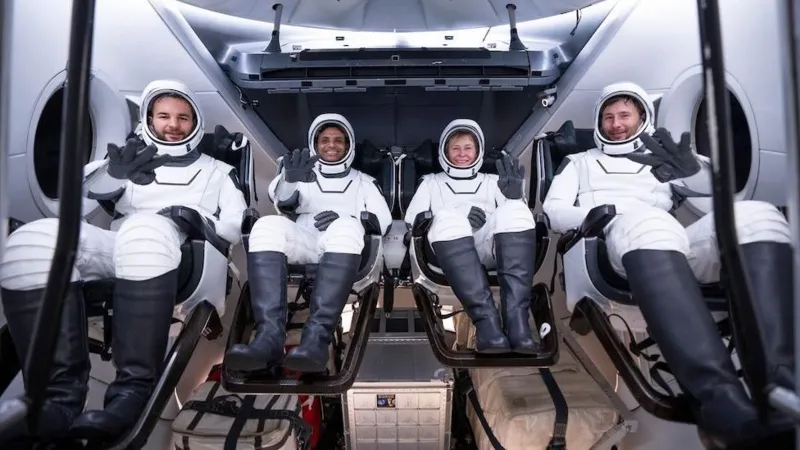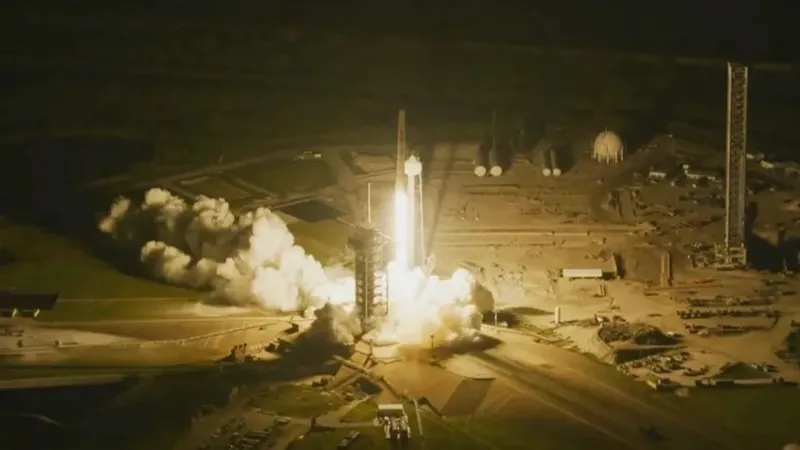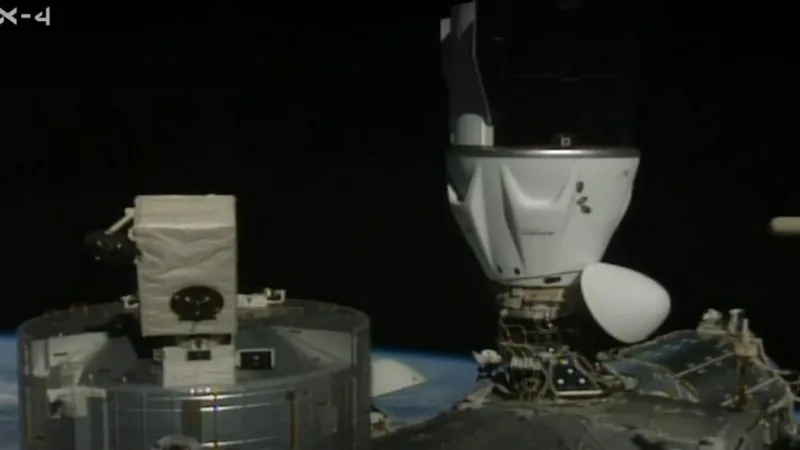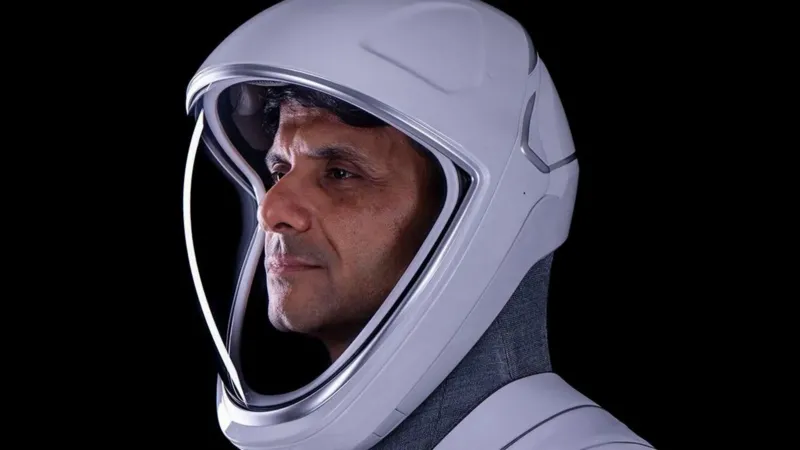Astronaut Shubhanshu Shukla Becomes First Indian to Set Foot on the ISS
Group Captain Shubhanshu Shukla becomes the first Indian to board the ISS as part of Axiom-4. Discover details of this historic space mission and its impact on India’s future in space.

🧑🚀 Astronaut Shubhanshu Shukla Becomes First Indian to Set Foot on the ISS
Published by Webmines AI News
🚀 A Proud Moment for India
Group Captain Shubhanshu Shukla has made history by becoming the first Indian astronaut to step aboard the International Space Station (ISS). The moment was witnessed live across the world as the Axiom-4 (Ax-4) mission successfully docked with the ISS, marking a milestone in India’s space journey.
This mission also makes Shukla only the second Indian to travel to space, 41 years after Rakesh Sharma, who flew aboard a Russian Soyuz spacecraft in 1984.

🛰️ About the Ax-4 Mission
The Axiom-4 mission, operated by Houston-based private firm Axiom Space, launched from NASA’s Kennedy Space Center in Florida at 02:31 EDT (06:31 GMT / 12:01 IST) on Wednesday. The docking with the ISS occurred the following day at 06:31 EDT (10:31 GMT / 16:01 IST).
The four-member Ax-4 crew includes:
-
Commander Peggy Whitson (former NASA veteran)
-
Pilot: Group Captain Shubhanshu Shukla (India)
-
Mission Specialist Slawosz Uznanski-Wisniewski (Poland)
-
Mission Specialist Tibor Kapu (Hungary)
This mission is the first spaceflight for India, Poland, and Hungary in over four decades, and a powerful symbol of international collaboration.

🧪 Scientific Objectives & ISRO’s Role
During their two-week stay, the crew will conduct 60+ scientific experiments, including seven designed by the Indian Space Research Organisation (ISRO). These experiments focus on:
-
Space medicine
-
Material science
-
Microgravity research
-
Advanced life support systems
ISRO has invested ₹5 billion ($59 million) to secure Captain Shukla’s seat on Ax-4 and provide him extensive astronaut training. The knowledge gained from this mission will play a pivotal role in India’s first human spaceflight, targeted for 2027, and long-term plans like:
-
A permanent Indian space station by 2035
-
A crewed Moon mission by 2040

🌌 Captain Shukla’s Reflections from Space
In a live session from orbit, Group Captain Shukla shared his early space experience:
“What a ride! It’s an amazing feeling to be just floating in space... it’s been a fun time.”
He added that adjusting to weightlessness was a challenge but also “like learning to walk again.” Despite initial unease, he joked about sleeping a lot—“a great sign,” according to mission experts.
🧸 Meet 'Joy' – The Fifth Crew Member
A small white toy swan named Joy floats among the astronauts as their zero-gravity indicator. Captain Shukla described Joy as a symbol of wisdom, saying:
“In this age of distractions, it reminds us of what truly matters.”
🌍 A Mission of ‘Grace’
Commander Peggy Whitson revealed the name of their vehicle: Grace.
“It reflects the elegance with which we move through space... and the harmony of science and spirit.”
Her words highlighted that spaceflight is not only engineering—it’s goodwill, for the benefit of humanity.
👨🚀 Significance for India
This historic moment represents more than just a personal achievement for Group Captain Shukla—it’s a giant leap for India’s space ambitions. As ISRO accelerates its human spaceflight capabilities, having a trained astronaut aboard the ISS enhances India’s readiness for independent missions.
📈 Final Thoughts
From Chandrayaan-3’s lunar success to now having a presence on the ISS, India’s space journey is scaling new heights. Group Captain Shubhanshu Shukla's achievement inspires a new generation of scientists, dreamers, and explorers.
👉 The future of Indian space exploration is not just bright—it's interstellar.
What's Your Reaction?
 Like
0
Like
0
 Dislike
0
Dislike
0
 Love
0
Love
0
 Funny
0
Funny
0
 Angry
0
Angry
0
 Sad
0
Sad
0
 Wow
0
Wow
0








































































